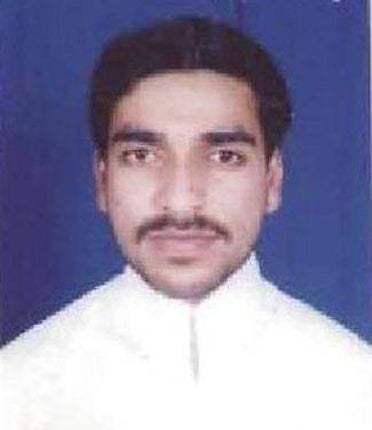Family of rendition victim begins legal action against Government

The family of a man secretly held by the Americans in an Afghanistan detention centre after his arrest by British forces six years ago has begun legal action against the UK Government to help secure his release.
The man is thought to be Yunus Rahmatullah, one of two alleged terrorists captured by British soldiers in Iraq in February 2004.
Last year the former defence secretary John Hutton admitted that British forces had been involved in the rendition of both men to Afghanistan when they were handed over to US forces. But despite repeated requests by the men's lawyers the Ministry of Defence has refused to confirm their identities, citing data protection rules.
The legal charity Reprieve said Mr Rahmatullah, known as Saleh, was being held in the mental health wing of Bagram prison camp and had been unable to contact his family or a lawyer and was in a "legal black hole".
Reprieve last year named the other suspect as the Pakistani national Amanatullah Ali, a rice merchant from the Shia sect of Islam, who was on pilgrimage in Iraq when he was captured.
The former shadow home secretary and civil liberties campaigner David Davis said: "If they are bad people, tell us who they are. I think the reason we are not being told is because it's politically embarrassing."
In a statement issued through Reprieve, Mr Rahmatullah's mother, Fatima, said: "Our family was shocked when we learnt that the British Government might have been behind Yunus's disappearance. My plea to the British Government is simple: Tell me whether you picked my son Yunus up, and gave him to the Americans. It is my basic right as a mother to know whether my son is still alive. I cannot bear further suspense. You have the power to help me recover my disappeared child."
Reprieve said that under legal aid rules the families cannot fund legal proceedings because there is not sufficient evidence that the prisoners were rendered to Afghanistan and proof is only available from the British Government.
The Reprieve director Clive Stafford Smith said: "Yunus Rahmatullah's mother cries herself to sleep at night because the Government refuses to do the decent thing and confirm or deny whether her son is alive, and whether her son was rendered from Iraq six years ago."
In a statement to the House of Commons in February last year, the then Defence Secretary, John Hutton, alleged that the men were members of an extremist group called Lashkar e Taiba, a radical Sunni group blamed for the Mumbai attacks.
An MoD spokesman said: "As the then Secretary of State made clear to Parliament in February 2009, the two individuals in question were insurgents captured in Baghdad as they posed an imperative threat to security of the Iraqi people and our armed forces. Their capture was legitimate and justified. We are prevented from disclosing their identity and, indeed, the identity of all other detainees, under the Data Protection Act. We can confirm however that the ICRC [International Committee of the Red Cross] has access to the two individuals and they are held in a humane, safe and secure environment within US detention facilities in Afghanistan, which meets international standards."
Mr Hutton told the Commons the US government claimed the men were moved to Afghanistan because of a lack of translators, but Reprieve said its investigation found that Rahmatullah spoke Arabic and could have been interrogated in Iraq.
Join our commenting forum
Join thought-provoking conversations, follow other Independent readers and see their replies
Comments
Bookmark popover
Removed from bookmarks